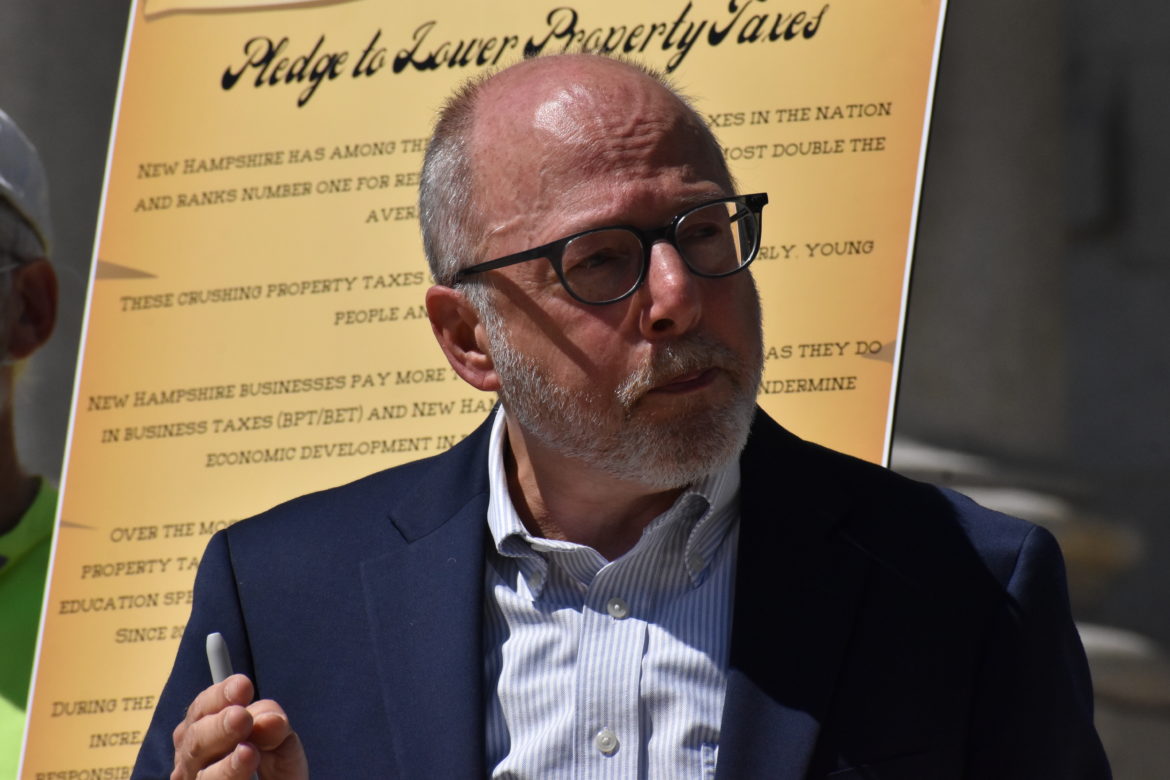You can do something about it.
From ‘A Book, an Idea and a Goat,’ Andru Volinsky’s weekly newsletter on Substack is primarily devoted to writing about the national movement for fair school funding and other means of effecting social change. Here’s the link: https://substack.com/@andruvolinsky?utm_source=profile-page
By ANDRU VOLINSKY
There are ten cookies on a plate. Good ones, not Oreo double stuff. The rich guy in charge takes nine of the cookies and gives them to his friends. He then tells you, “Look out, that guy in the shadows over there is trying to take your cookie.”
This short parable is an example of contrived scarcity thinking, with a side order of xenophobia. It’s used to inform and influence public policy by, you guessed it, the rich guys. Rachel Gardner, in the context of book publishing, posits “enough” as the opposite of scarcity. I agree that enough is enough and the opposite of scarcity is not abundance. If the rich guy only took eight, there would be a cookie for the guy in the shadows and one for me. Perhaps if there was enough there would be no need to worry about the shadows. Even better if the rich guy took only six of the ten cookies.
We don’t want to defend abundance as our policy goal. It’s wasteful and abundance leaves us too much to defend. We don’t each need a lot to get by. We need enough. As the old criminal lawyer that I am, I also reflexively flinch at taking on more of a burden of proof than necessary. Never over promise or over ask. To quote the disciples, “You can’t always get what you want, but if you try sometime, you’ll find you get what you need.”
This first post in the new year includes an assignment. Your assignment is to view upcoming changes to public policy from an “enough” mindset and to find ways to call out the diversions used by the most powerful to distract us from complaining about contrived scarcity. I am asking you to write about, talk about and think about the times when those in power deploy a scarcity mindset when the resources or revenues at issue are not in fact scarce. Do this in whatever way you are most comfortable—in a letter to the editor, at your school district meeting, in your private journal, or in conversations with friends and loved ones. Do it in terms of national policy that affects access to health care, or state policy that affects the funding of education or in local policy that encourages construction of more affordable housing.
Thinking about the scarcity economy is important now because many states are about to embark on building state budgets. People say budgets are a statement of priorities, which is true. But budgets are also an indication of a state’s perspective. Do we live in a “scarcity state” where people are asked to go without necessities or do we strive to be an “enough state” for everyone? Do we arrive at this perspective after thoughtful consideration of our assets and needs or do political leaders contrive to artificially set our expectations? Are all ten cookies on the plate or have nine of them been poached by insiders and political donors?
A state’s gross domestic product (GDP) is the value of the goods and services produced by private industry in that state. NH’s GDP in 2023 was $112.5 billion, larger than Maine’s which was $90.9 billion. But Maine is the fastest growing of the New England states likely because of Governor Mills’ focus on policies that invest in Maine’s people (e.g., free community college) or that encourage in-migration (e.g., tax credits to pay off student loans). Mills has taken an “enough mindset” and it has helped Maine tremendously. NH under Sununu and the Republicans has adopted a trickle down approach based on a contrived scarcity of revenues and NH is falling behind as a result.
NH’s budget will approach seven billion dollars a year. Our combined state and local tax burden is among the lowest in the nation. Our choice of which taxes to use, however, makes the burden fall unequally on our taxpayers with some bearing a particularly harsh burden while others get off with paying a lot less in taxes.
A NH multi-millionaire living in a low-tax property wealthy community may only spend a pittance on local and state taxes while a family whose only major asset is their home pays 20 or 30 percent of their income on property taxes and a similar amount on daycare. Worse yet, NH’s scarcity mindset combined with its trickle-down economics has led young people in our state to give up the dream of homeownership altogether.
Do we start the budget process simply by accepting that our unfair and regressive tax system produces too little revenue to support the needs of the people who live in our state or do we ask if everyone is paying their fair share?





